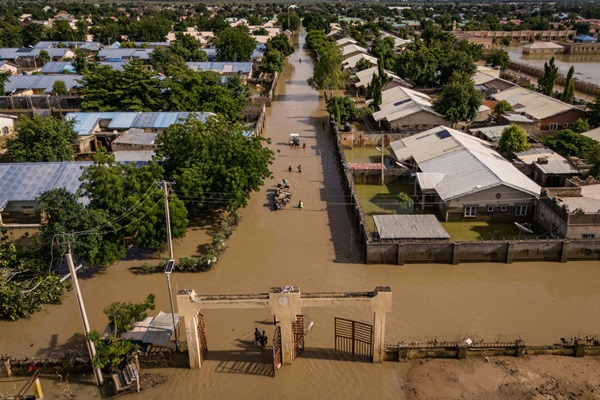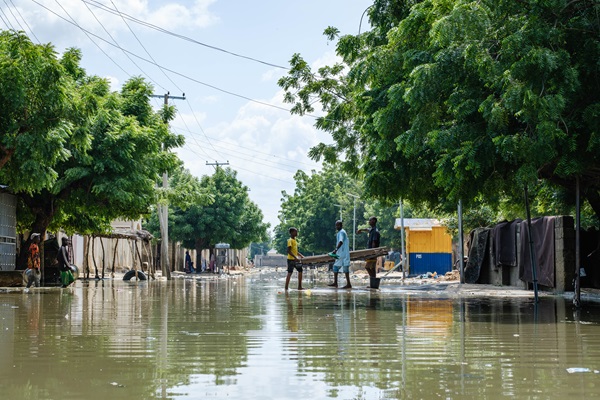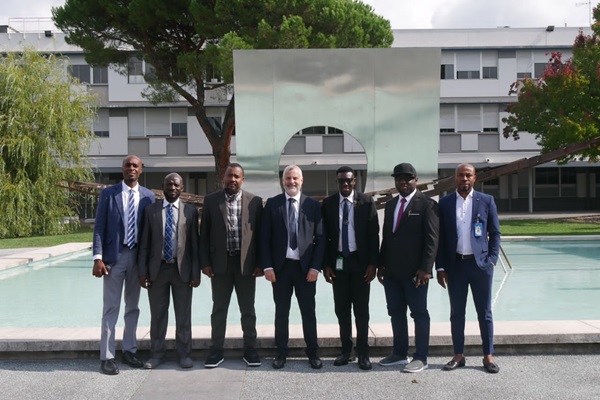Place your adverts here on InfoDig @ low rates; banner ads, sponsored links and guest articles etc. Contact us
 Aerial view of Maiduguri’s neighborhood in Borno State, showing properties submerged by floods. © Mercy Corps.
Aerial view of Maiduguri’s neighborhood in Borno State, showing properties submerged by floods. © Mercy Corps.More than 4 million people across West and Central Africa are struggling with the effects of unprecedented flooding, with heavy rains expected to continue.
This year’s flooding has been among the most severe and destructive in decades, with women and children bearing the brunt of the disaster.
On September 10, 2024, flash floods devastated Maiduguri, the capital of Borno State, Nigeria, after the Alau Dam was damaged and overflowed its banks. Thousands of people were displaced, entire neighbourhoods submerged and critical infrastructure destroyed. Nearly two weeks later, although the floodwaters are receding, the humanitarian needs remain overwhelming. Families still lack access to clean water, food and shelter, while the risk of waterborne diseases has increased. The Nigerian government has also warned of potential flooding in 11 states due to water releases from dams in neighbouring Cameroon.
Hannoki Ali, a mother of nine whose family survived the flood, shared her traumatic experience: “In the early hours of September 10,2024 our entire community was submerged, forcing us to flee with nothing. We spent days on the streets, scavenging for essentials. When we returned, our house was half-destroyed and we have no idea how to survive.”
 Flooded street of Maiduguri, Borno State. © Mercy Corps.
Flooded street of Maiduguri, Borno State. © Mercy Corps.Mercy Corps’ regional director for West and Central Africa, Dr. Fatim Haidara stated:
“What we’re witnessing in West and Central Africa is one of the worst flooding seasons in recent history.
“The floods are destroying food systems in addition to washing away homes. In countries like Nigeria, where over 32 million people already face severe food insecurity, the timing of the floods just before harvest season is particularly devastating. With crop fields wiped out, infrastructure damaged and millions of livelihoods destroyed, the ripple effects will have long-term consequences on food security in the region and beyond. Worse still, humanitarian budgets are overstretched and unable to meet the significant needs emerging from this crisis.
“Humanitarian aid alone cannot address the scale of this disaster. As world leaders gather at Climate Week in New York, this crisis underscores the urgent need for climate adaptation and decisive action. Global leaders must act now to protect vulnerable communities from the devastating impacts of climate change, which are costing lives and livelihoods. We need robust investments in early warning systems and disaster preparedness to protect lives and prevent future tragedies.”















 English (US) ·
English (US) ·